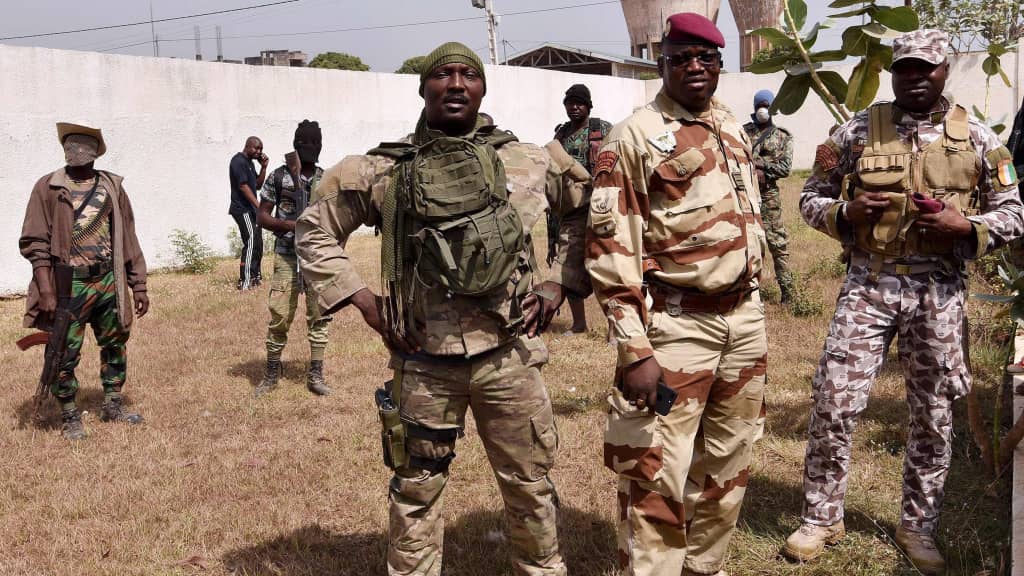West African nations on Friday worked on gathering troops for a possible military intervention in Niger as the leaders of an army coup resisted international calls for them to step down and restore the ousted president to office.
The regional bloc ECOWAS ordered the activation of the standby force on Thursday, two weeks after generals ousted President Mohamed Bazoum in the seventh coup in West and Central Africa in three years.
It was not yet clear how big the force will be, how long it will take to assemble, and if it will actually invade. Efforts in recent years to organise a West African force of thousands of troops have been hobbled by funding and logistics constraints, security analysts said.
But the proposed mission has raised the spectre of deepening conflict in a strategically important region where western powers have lost sway during the spate of coups and where Russian influence appears on the rise.
Security analysts said an ECOWAS force could take weeks or longer to assemble, potentially leaving room for negotiations.
Ivory Coast is the only country so far to specify how many troops it would send. President Alassane Ouattara on Thursday promised a battalion of 850 troops.
Benin’s army spokesman said on Friday it would contribute troops but did not say how many. Senegal said last week it would contribute troops if there were an intervention.
Most other Ecowas countries – including regional military heavyweight Nigeria which accounts for more than half the bloc’s population and holds its rotating presidency – have so far declined to comment.
Gambia’s defence minister Sering Modou Njie and Liberia’s minister of information Ledgerhood Rennie told Reuters on Friday that they had not yet taken a decision to send troops.
Military governments in neighbouring Mali and Burkina Faso, both Ecowas members, have said they will defend the junta in Niger.
The African Union welcomed ECOWAS’ decision to activate the force and continue to seek a diplomatic solution. The junta has yet to react.
The coup in uranium-rich Niger, one of the world’s poorest countries but a key ally for the West in the fight against Islamist militants in the Sahel region, was triggered by internal politics but has repercussions far beyond its borders.
U.S., French, German and Italian troops are stationed in Niger as part of the fight against local affiliates of al Qaeda and Islamic State.
The capital Niamey was calm on Friday morning, but residents were angered by the threat of military intervention.
“We have no fear of that because our defence and security forces and the people are together,” said student Hama Moussa.
“From the moment they took sanctions against the people of Niger and afterwards, they saw that the people rose up to fight these decisions.”
Another student, Balla Souleymane, also angry with ECOWAS, said: “Deep down inside, I’m not afraid, I’m going about my business. I think this is just blackmail.”
Since the coup, many Nigeriens have turned up at junta-organised rallies to show support for the generals, criticising Western powers and lauding Russia, mirroring reactions following recent coups in Mali and Burkina Faso, whose military juntas kicked out French forces after taking power.
The embassy of former colonial power France has been the target of protests in Niamey.
France said it fully backed all the conclusions of the ECOWAS emergency summit held in Nigeria’s capital Abuja on Thursday. But it stayed clear of outlining any concrete support it could give to any potential intervention.
There has still been no official request from ECOWAS to either the French or the United States for any help for a military operation, a French source said. It was not clear for now what the reaction would be to any potential request, they added.
Reiterating support for the efforts by ECOWAS, U.S. Secretary of State Antony Blinken said the United States would hold the junta accountable for the safety of Bazoum and his family. The EU also called for his immediate release.
Human Rights Watch said it had spoken to Bazoum this week and that the ousted president, who is being held captive by the junta with his wife and son, had told them that his family’s treatment in custody was “inhuman and cruel”.
“My son is sick, has a serious heart condition, and needs to see a doctor,” HRW quoted Bazoum as telling them.
Bazoum’s daughter Zazia Bazoum, who is in France, told Britain’s Guardian newspaper that her father was losing weight and that the junta was keeping him in deplorable conditions to try to pressure him to sign a resignation letter.
Reuters could not independently confirm the conditions of his detention.
Reuters




